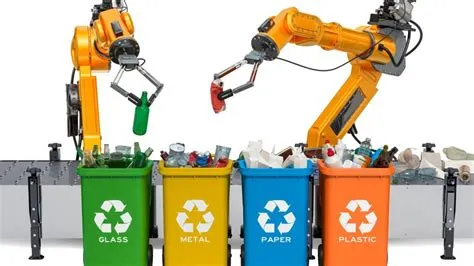Hey there, fellow business enthusiasts! Ever wonder if doing good can actually be good for business? Turns out, it absolutely can be. We’re diving into the exciting world of sustainable and ethical business practices – a movement that’s not just a trend, but a crucial shift towards a healthier planet and a more equitable future. Let’s explore how we can build businesses that thrive while minimizing their environmental footprint and maximizing their positive social impact.
Think of it like this: your business is a tree. To grow strong and healthy, it needs strong roots (ethical foundations) and healthy branches (sustainable operations). Neglecting either aspect will lead to a weaker, more vulnerable tree. Sustainable and ethical practices aren’t just about checking boxes; they’re about building a resilient and responsible business for the long haul.
One of the key pillars of sustainable business is reducing waste and embracing circular economy principles. This means moving away from the traditional “take-make-dispose” model and adopting a circular model where materials are reused, repurposed, and recycled. Imagine a closed loop, where the end of one product’s life cycle becomes the beginning of another. That’s the beauty of the circular economy, and a core principle of circular economy and circular supply chains.
Material reuse technology is a game-changer in this context. It’s not just about recycling; it’s about finding innovative ways to use materials multiple times, often in completely different applications. Think about shredded plastic bottles being transformed into fleece jackets, or construction waste being repurposed as building materials. This reduces reliance on virgin materials, lowers your carbon footprint, and often saves you money. Isn’t that a win-win-win?
But sustainability isn’t just about the environment; it’s deeply intertwined with ethics. An ethical business prioritizes fair labor practices, transparent supply chains, and responsible sourcing. It’s about treating your employees, suppliers, and customers with respect and integrity. Are you ensuring fair wages, safe working conditions, and ethical sourcing throughout your supply chain? It’s a question every business needs to ask itself. You can delve deeper into these crucial aspects by exploring our resources on ethical supply chain management and corporate social responsibility (CSR).
Furthermore, implementing sustainable practices often leads to cost savings. Reducing energy consumption through renewable energy solutions and efficient technologies, for example, can significantly lower your utility bills. Investing in green technology and innovation might seem like an upfront expense, but the long-term returns often outweigh the initial investment. Want to explore the financial side of sustainability? We’ve got articles on the cost and financial impact of sustainable initiatives.
Building a sustainable and ethical business isn’t a sprint; it’s a marathon. It requires a long-term commitment, constant learning, and a willingness to adapt. It involves setting ambitious goals, implementing effective strategies, and regularly measuring your progress. Transparency is key; regular CSR reporting and metrics allow you to track your performance, identify areas for improvement, and demonstrate your commitment to stakeholders.
Consider your CSR and employee engagement. When employees feel valued and involved in sustainability initiatives, they’re more likely to be engaged and productive. Moreover, demonstrating your commitment to sustainability can attract and retain top talent. And let’s not forget the importance of considering CSR and stakeholder impact. By engaging with your community and addressing the needs of your stakeholders, you build trust and foster a positive reputation.
Think about the environmental impact of your business. Do you prioritize environmental CSR? Are you utilizing green construction tech if applicable? Are you implementing sustainable logistics to minimize your transportation footprint? These are crucial questions to consider.
Furthermore, strong supplier relationships are crucial for implementing sustainable practices throughout your supply chain. Collaboration with ethical and sustainable suppliers is essential, and obtaining ethical certifications can help build trust and transparency. Following policy and compliance also ensures you operate within ethical and legal boundaries. And innovation in sustainable tech innovation can open doors to new opportunities and a competitive advantage. Remember, a truly sustainable business isn’t just environmentally friendly, but also socially responsible and economically viable.
In conclusion, embracing sustainable and ethical business practices is not just a moral imperative; it’s a strategic advantage. By prioritizing sustainability and ethics, you not only contribute to a healthier planet and a more equitable society but also enhance your brand reputation, attract and retain top talent, and ultimately, boost your bottom line. The journey might seem daunting, but every step counts, and the rewards are well worth the effort. Remember, it’s about building a business that thrives for generations to come. You can find more information and insights on this topic by exploring our blog: Accurate Biz Blog.
Frequently Asked Questions
- What is the difference between sustainability and ethics in business? Sustainability focuses on environmental responsibility – minimizing the environmental impact of your operations. Ethics focuses on social responsibility – fair treatment of employees, suppliers, and customers, and conducting business with integrity.
- How can small businesses implement sustainable practices? Start small! Focus on areas where you can make the biggest impact, such as reducing energy consumption, minimizing waste, and sourcing materials responsibly. Look for affordable and accessible solutions.
- What are the financial benefits of sustainable business practices? Reduced energy and waste costs, increased efficiency, improved brand reputation, attracting and retaining top talent, and access to green financing options are some of the significant financial benefits.
- How can I measure the success of my sustainability initiatives? Set specific, measurable, achievable, relevant, and time-bound (SMART) goals. Track your progress regularly using key performance indicators (KPIs) and conduct regular audits.
- Where can I find resources to help my business become more sustainable? Many organizations offer resources, certifications, and training programs to support businesses in their sustainability journey. Check out government websites, industry associations, and non-profit organizations dedicated to sustainability.

